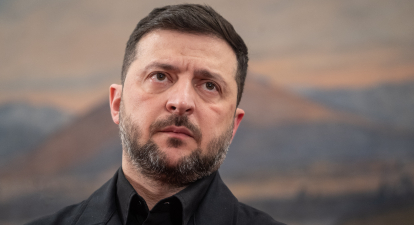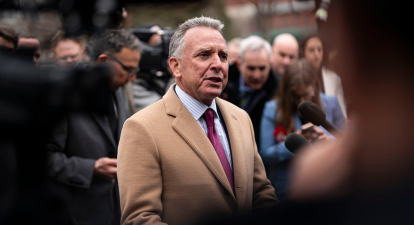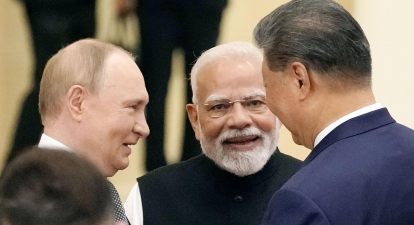 Organization summit /Getty Images” />
Organization summit /Getty Images” />
Russian President Vladimir Putin (l), Indian Prime Minister Narendra Modi (c) and Chinese President Xi Jinping during the second day of the Shanghai Cooperation Organization summit, September 1, 2025. Photo by Getty Images
US President Donald Trump's policies are paradoxically bringing US geopolitical rivals closer together, although this rapprochement remains limited due to internal disagreements between key members of the Shanghai Cooperation Organization. Key takeaways from the SCO summit in Tianjin by WP and Bloomberg
Buy an annual subscription to six Forbes Ukraine magazines for the price of four issues. If you value the quality, depth, and power of real-world experience, this subscription is for you.
Chinese leader Xi Jinping has skillfully used the Shanghai Cooperation Organization (
Popular Category Money Date Today Clear terms for property seizure and fewer searches. Deputies finalized changes to the Criminal Procedure Code that businesses insisted on. What problems for entrepreneurs can this solve?
Symbolic diplomacy with far-reaching consequences
The highlight of the summit was the meeting of three of Asia's most powerful leaders: Chinese President Xi Jinping, Russian President Vladimir Putin and Indian Prime Minister Narendra Modi, who held hands in front of the cameras. For Modi, it was his first visit to China in seven years, an unprecedented gesture of rapprochement despite decades of tension between Delhi and Beijing.
Particularly symbolic was Modi and Putin's joint ride in the Russian president's limousine – an unplanned hour-long conversation that underscored their close relationship despite Washington's pressure on Delhi.
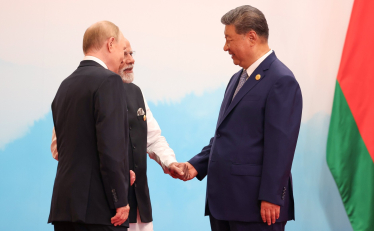
Russian President Vladimir Putin (l), Chinese President Xi Jinping (r) and Indian Prime Minister Narendra Modi (c) before the start of the meeting of the Council of Heads of State of the Shanghai Cooperation Organization (SCO) Summit 2025 in Tianjin, China, September 1, 2025. Photo by Getty Images
Trump as a catalyst
Paradoxically, Donald Trump's policies have become the main factor uniting the US's geopolitical rivals. The American president simultaneously attacks all the key participants in the summit:
- imposes 50% tariffs on Indian goods – the highest in Asia;
- criticizes India for buying Russian oil;
- continues the trade war against China;
- strengthens sanctions against Russia and Iran.
“This is a coalition of like-minded people against the United States, united more by shared grievances than by a common goal,” Carla Freeman, director of the Johns Hopkins University Foreign Policy Institute, tells WP.
Economic logic prevails over geopolitics
Despite border skirmishes and decades of mutual distrust, China and India are demonstrating a pragmatic rapprochement based on economic interdependence.
The numbers speak for themselves: trade between the countries is expected to reach $127 billion in 2024, with China remaining India’s second largest trading partner after the US. India imports $48 billion worth of electronics from China annually – critical components for its manufacturing ambitions.
Indian billionaires including Gautam Adani and Mukesh Ambani have been quietly holding talks with Chinese tech giants. Adani has met with executives from CATL, a global leader in battery manufacturing, while Sajjan Jindal’s JSW Group has already struck a deal with Chery Automobile to develop electric vehicles.
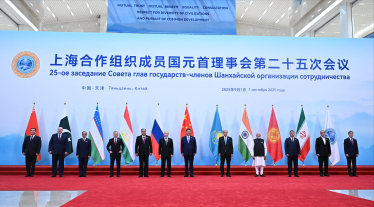
In this photo from a pool distributed by the Russian state agency Sputnik, Belarusian President Alexander Lukashenko, Pakistani Prime Minister Shehbaz Sharif, Uzbek President Shavkat Mirziyoyev, Tajik President Emomali Rahmon, Russian President Vladimir Putin, Chinese President Xi Jinping, Kazakh President Kassym-Jomart Tokayev, Indian Prime Minister Narendra Modi, Kyrgyz President Sadyr Japarov and Iranian President Masoud Pezeshkian pose for a group photo during the Shanghai Cooperation Organization (SCO) summit in Tianjin on September 1, 2025. Photo by Getty Images
Russia is playing for survival
For Putin, the summit was an opportunity to demonstrate that Russia is not isolated despite Western sanctions. The Russian leader has traditionally blamed the West for the war in Ukraine and declared the need to eliminate the “root causes of the crisis,” effectively demanding that Ukraine be transformed into a vassal state of the Russian Federation.
Modi has publicly supported a “special and privileged” relationship with Russia, saying he “looks forward” to Putin’s visit to India in December, a direct response to Trump’s criticism of India’s purchase of Russian oil.
The summit provided Putin with an opportunity to discuss with Xi and Modi the results of his meeting with Trump in Alaska and the prospects for reaching an agreement to end the war in Ukraine.
Long-term risks for the US
The most serious challenge for America is not the military alliance of its rivals, but the formation of an alternative economic ecosystem. Xi Jinping seeks to create an alternative system of international governance that is independent of the United States and Europe.
The Chinese leader is promoting the creation of the SCO Development Bank as a counterweight to Western financial institutions, promising to allocate $1.4 billion in loans to the organization's interbank consortium over the next three years, and this year, $275 million in grants to SCO member countries.
Xi emphasized the economic weight of the organization: the 26 member countries control a quarter of the world economy and 40% of the planet's population. Although this is mostly statistical manipulation, the symbolic value is obvious, WP and Bloomberg emphasize.
Without directly mentioning the United States, the Chinese leader condemned the “Cold War mentality” and “bullying practices.”
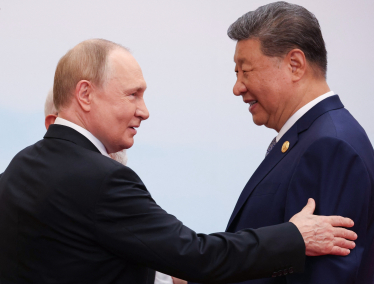
Russian President Vladimir Putin (l) speaks with Indian Prime Minister Narendra Modi (c) and Chinese President Xi Jinping during the Shanghai Cooperation Organization summit, September 1, 2025. Photo by Getty Images
Alternative world order system
Trump's “America First” strategy is paradoxically accelerating the formation of a multipolar world. Instead of isolating rivals, US tough policies are pushing them towards unification.
For American businesses, this means loss of access to vast markets and supply chains. For the global economy, it means fragmentation into competing blocs with different standards and currencies.
China cannot yet replace the United States as a global leader, but it is successfully creating an alternative system for those dissatisfied with American dominance. And Trump's policies are only accelerating this process.
Materials on the topic

Category World Date May 10 “China is in the best position in three years of war.” Why did Xi Jinping come to Putin's parade in Moscow? Seven questions for Sinologist Viti Golod

Category World Date August 23, 2024 The Prime Minister of India came to Kyiv for the first time. How can Ukraine benefit from this? Three reasons why you should not expect a breakthrough

Category World Date August 30 Signals to Orban. The US asks Hungary to unblock EU accession talks, while Ukraine hits Druzhba. Is a breakthrough in European integration imminent?
